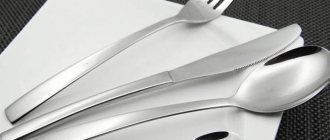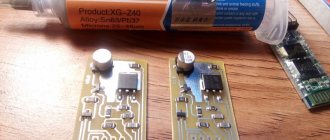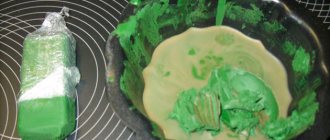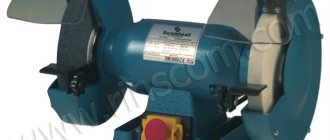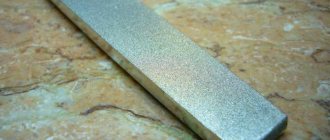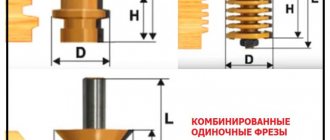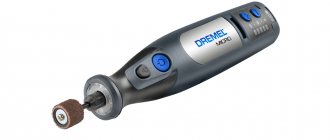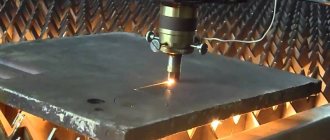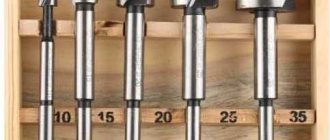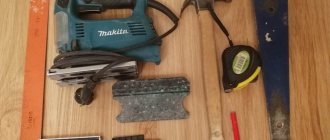An internal combustion engine consists of many elements, components, and assemblies that are constantly exposed to high temperatures and are in motion. This leads to various negative effects - scale formation, increased fragility, mechanical deformation, cracking. To increase the shelf life of such elements, lapping paste (PP) is used. It is usually used for processing automotive valves.
But what exactly are the functions of the lapping paste? What to consider when choosing a PP for a car? And is it possible to make lapping paste yourself? Below we will find out the answers to these questions.
General information about lapping paste
Lapping paste is used for lapping valves that are part of internal combustion engines. The lapping procedure improves the physical and technical characteristics of valves (strength, elasticity, hardness, absence of cracks), and also allows to increase the service life of the valve. Lapping is performed in three cases:
- Replacing old valves with new ones. Lapping reduces the risk of cracking. This treatment minimizes contact of the metal surface with liquids, which reduces the risk of scale and rust formation.
- Overhaul of a car or engine. If the engine is used for a long time, scale forms on the valves, which negatively affects the technical and operational characteristics of the part. If the part is old, it can be replaced. If the part is in good condition, it can only be treated with PP - in this case there will be no need to replace it.
- Urgent car or engine repair. Mechanical damage during an accident is distributed unevenly throughout the car. If the engine has received slight damage, then you do not need to replace the valves - you can only treat them with lapping paste, which will strengthen the parts, making them stronger and more reliable.
There are two types of PP - homemade and factory-made. Homemade mixtures are made from scrap materials, and their cost is low. However, such mixtures have a major drawback - the quality of such PP is low, which reduces their functional properties. Today there is a large selection of factory mixtures that contain many useful components that have a complex effect on engine parts.
PP differ in a number of parameters - grain size, viscosity, type, presence of additional additives, brand, packaging volume. In Russia, various lapping pastes for valves are available for sale. The basic popular brands are VMP Classic, VMP Professional, ABRO GP-201, Done Deal abrasive-grinding mixture, GOI. The purchase should be made taking into account the technical characteristics of your engine. Ideally, the selection of software should be carried out by an auto repair shop employee who has the appropriate experience and qualifications.
Classification of polishing pastes
To give the surface of metal products a mirror look, it is not necessary to resort to the help of machines. You can do everything yourself. The main thing is to choose the right special tools, which can be presented in the following groups:
- Aquatic. Fat-free pastes. Provide excellent results when following the instructions for their use.
- Organic. They contain paraffin and various oils. They are used only in diluted form, for which they are mixed with various oils and fatty acids.
- Diamond paste. A radically new product with which you can quickly add shine to any surface.
Diamond paste
Among all the above listed compositions, the last polishing option deserves the most attention. With the help of paste you can achieve such amazing results that there is no need to even use a polishing machine. This composition for processing metal products is today available in two versions: ASN and ASM brands (expensive).
Diamond paste is very popular among many home craftsmen due to the following advantages:
- Accuracy. Thanks to the synthetic diamonds included in the composition, you can polish any metal product to a high shine with a high degree of precision.
- Wide range of grain sizes. Pastes with more than 12 types of grit are offered for sale.
- Easy to use. Each craftsman can perform surface finishing independently, without resorting to the help of a special tool.
- To process metal products, you need the most common equipment - a rag, water and a pair of rubber gloves.
But for all their advantages, these pastes have a serious drawback - their high price. Purchasing such a product to give an aesthetic appearance to a metal product will cost no less than 500 rubles. for 35 grams of substance.
Principle of operation
The required effect as a result of the use of diamond paste is achieved due to its action on the surface by chemical or mechanical means, which ultimately leads to the formation of a dispersed film on it. Products for finishing metal products contain special active substances that accelerate the occurrence of adsorbing processes, so that material grinding can be performed as efficiently as in a factory environment, with the same time costs.
Advantages
This paste interacts well with all types of materials - stone, plastic, rubber and paper. If necessary, polishing wheels can be additionally lubricated with a similar composition to increase the efficiency of finishing the metal surface. All this only has a positive effect on the quality of processing and allows you to achieve a mirror effect. In the latter case, processing is carried out using circles made of special materials - leather, felt and felt.
What are the functions of lapping paste?
Any valve of an internal combustion engine consists of two structural elements - a plate and a stem. The plate looks like a flat disk, which is located at the end of the leg. It fits tightly to the seat on the motor (this place is called the saddle). The plate must fit snugly against the seat to ensure complete sealing of the connection. Such a strict requirement has a simple explanation - the closer the plate is located to the seat, the less heat loss from the engine will be and the higher the efficiency of the internal combustion engine will be. In an ideal scenario, heat loss tends to zero, and all the heat goes to perform useful work.
However, it is not always possible to achieve a tight fit of the plate to the seat. This problem is further complicated by the fact that in the case of long-term operation of the engine, minor damage, scale, and rust form on the surface of the valve plates, which leads to a decrease in the tightness of the connection. The longer the engine is operated, the more the tightness of the connection weakens. The use of PP allows solving the following engineering problems:
- Restoring natural sealing. In fact, PP is an abrasive, and during processing, rust, scale, chips, scratches, and burrs are removed. As a result of processing, the plate becomes smooth, straight, and uniform. This leads to a tighter fit of the plate to the seat, which increases the tightness.
- Reducing oil to waste. Additionally, the elimination of external defects ensures that no oil is ejected during engine operation. This reduces the amount of oil lost, which minimizes the risk of scale, soot, and rust formation.
- Restoring engine compression. Due to small defects on the surface of the compression disk, the efficiency of the engine decreases. Treatment allows you to restore natural compression, which also normalizes the level of engine efficiency.
What to consider when choosing a lapping paste
PPs differ from each other in a number of parameters.
Technical specifications:
- Grain size. This parameter is key. Coarse-grained compounds are used for rough grouting, as well as for processing parts made of durable metal alloys (alloy steel). However, coarse mixtures cannot be used to process parts that are in good condition - in this case, the mixture may create additional damage and microcracks. Fine-grained mixtures are suitable for finishing parts, as well as for working on valves that are in good condition. If the part is durable, then it will be difficult to use a fine-grained mixture. Beginners are advised to buy PP with a medium grain size - this paste processes all major alloys well, and the risk of defects is minimal.
- Composition of the material. To treat gasoline engines, standard mixtures without any additives are used. If you are dealing with a diesel engine, then you should buy a mixture that additionally contains diamond chips. Diesel engines are made of ultra-strong alloys, so they require a particularly sharp abrasive to process them. Clean the disk and seat of a diesel engine using a regular mixture, but for this you will have to make additional efforts, and the processing time will increase by 4-5 times.
- Price and quality. High-quality mixtures are easier to apply and take longer to harden after dilution. However, they also cost more. Cheaper mixtures should be used immediately after dilution, as they quickly harden and lose their useful technical properties. However, they can save you extra money, which can be important in some situations.
For auto repair shops, it is recommended to buy a large package - this will save extra money.
Mass fraction of diamond powder in diamond pastes
| Diamond Powder Grit | Abrasive ability of paste, mg, not less | ||
| N | P | IN | |
| 60/40 | 67 | 127 | 175 |
| 40/28 | 62 | 123 | 163 |
| 28/20 | 57 | 112 | 157 |
| 20/14 | 52 | 102 | 153 |
| 14/10 | 47 | 97 | 148 |
| 10/7 | 42 | 93 | 143 |
| 7/5 | 37 | 82 | 137 |
| 5/3 | 32 | 65 | 108 |
Popular PP brands on the Russian market
In Russia there are many factory brands of PP on sale, which may have strong differences. Below we will look at several popular brands of pastes.
VMP Classic
The most popular brand of lapping abrasives on the Russian market. This material can be used to treat both diesel and gasoline engines. Can be used for both rough and final finishing. The average grain size is 70-90 micrometers, but during processing the grain is reduced by 5-10 times, which is a big plus (this ensures the versatility of the paste). PP does not deteriorate during storage and is easy to use. The brand is available in the form of plastic tubes with a spout, as well as in bags. The cost of a large tube weighing 400 grams is 700-800 rubles.
VMP Professional
It is an improved modification of the previous brand. Suitable only for treating gasoline engines (for treating diesel engines, it is recommended to use another brand of VMP Almaznaya). Can be used for roughing or finishing. The average fraction size is 45-75 micrometers, and during processing the fractions decrease in size. The brand is professional - it can be used to treat engines of both simple cars and racing ones. You can also rub the valves of trucks, buses, and various military equipment with the paste. The paste is available in the form of tubes and also in bags. The cost of a tube weighing 400 grams ranges from 900 to 1200 rubles.
VMP Diamond
This brand of PP contains diamond chips. Therefore, it can be used to process durable diesel engines. But it is not recommended to use it for grouting gasoline engines - grains of the material will leave scratches, which can lead to cracking of the valves. The grade is used for roughing or finishing. PP is not recommended to be mixed with other compounds. Available in four different varieties (tubes with composition + 1 kg bag). The cost of a large tube weighing 400 grams ranges from 1300 to 1800 rubles.
ABRO GP-201
ABRO GP-201 is available in the form of small jars, where the total weight of the two mixtures is 140 g. Each jar is divided into two sections:
- The first section contains COARSE paste. This composition is coarse-grained, and it is used for rough work, as well as for processing heavy-duty valves.
- The second section contains another PP, which is called FINE. This composition belongs to the category of fine-grained, and with its help final work is performed.
- Using PP is simple - first you use COARSE, and then use FINE. This processing method allows you to perform cleaning efficiently, conveniently, and quickly.
ABRO GP-201 does not deteriorate during storage. PP is classified as heat-resistant, so it can withstand high temperatures that a powerful engine can reach during operation. The cost of one such jar is 200-400 rubles.
Lapping and abrasive material Done Deal
The composition of this material is similar to ABRO GP-201 paste:
- The packaging is divided into two self-contained sections.
- The first section stores the universal medium-grain mixture.
- The second section stores the fine-grained mixture.
- For grouting, a person first uses a medium mixture, and then a fine one.
Done Deal is suitable for treating gasoline engines. The mixture does not contain large fractions, so it is not recommended for use on severely damaged valves. One package includes 2 identical tubes with a total weight of 50 g. The cost of one package is 300-500 rubles.
GOI
It is a lapping paste based on chromium oxide and stearin. Suitable for treating all petrol engines. The average cost of 1 package is 100-200 rubles. Available in three varieties depending on grain size:
- Experienced people should buy coarse and fine grain GOI, and the processing should be done in two stages.
- Beginners are advised to give preference to universal medium-grain PP, and processing can be done in one go.
Prices for diamond pastes
| p/p | ASM/ASN | Diamond concentration in carats per 1 kg | Price per 1 kilogram | ||||
| N | P | IN | N | P | IN | ||
| 1 | 60/40 | 400 | 1 000 | 2 000 | 4000 | 10 000 | 20 000 |
| 2 | 40/28 | 400 | 1 000 | 2 000 | 4 000 | 10 000 | 20 000 |
| 3 | 28/20 | 300 | 750 | 1 500 | 3 200 | 7 500 | 15 000 |
| 4 | 20/14 | 300 | 750 | 1 500 | 3 200 | 7 500 | 15 000 |
| 5 | 14/10 | 300 | 750 | 1 500 | 3 200 | 7 500 | 15 000 |
| 6 | 10/7 | 200 | 500 | 1 000 | 2 400 | 5 000 | 10 000 |
| 7 | 7/5 | 200 | 500 | 1 000 | 2 400 | 5 000 | 10 000 |
| 8 | 5/3 | 200 | 500 | 1 000 | 2 400 | 5 000 | 10 000 |
| 9 | 3/2 | 100 | 250 | 500 | 1 500 | 2 500 | 5 000 |
| 10 | 2/1 | 100 | 250 | 500 | 1 500 | 2 500 | 5 000 |
| 11 | 1/0 | 100 | 250 | 500 | 1 500 | 2 500 | 5 000 |
| 12 | 0,5/0 | 100 | 250 | 500 | 1 800 | 3 500 | 7 500 |
| 13 | 0,3/0 | 100 | 250 | 500 | 1 800 | 3 500 | 7 500 |
The price indicated is for 1 kg. Pastes are packaged in 40, 50, 100, 200 and 500 grams. Excluding VAT.
Please check the availability of containers at the time of ordering.
Prices from ten kilograms are agreed upon individually
Elbor paste
| p/p | LM | Ct | Price for 1kg |
| 1 | 60/40 | 400 | 12 000 |
| 2 | 40/28 | 400 | 12 000 |
| 3 | 28/20 | 300 | 10000 |
| 4 | 20/14 | 300 | 10000 |
| 5 | 14/10 | 300 | 10000 |
| 6 | 10/7 | 200 | 6000 |
| 7 | 7/5 | 200 | 6000 |
| 8 | 5/3 | 200 | 6000 |
| 9 | 3/2 | 100 | 3500 |
| 10 | 2/1 | 100 | 3500 |
| 11 | 1/0 | 100 | 3500 |
How to prepare PP yourself
How to make your own lapping paste. Below we will look at 2 main recipes that have proven effective in practice.
Recipe #1
To prepare you will need the following items:
- Several sharpening stones (2 or more). The abrasive must be fine. The shape of the stone can be any - circle, square, rectangle, oval.
- A clean work table or workbench. Before work, it is recommended to wash and dry the table. This will prevent water or third-party components from getting into the mixture.
- A large blank sheet of paper (A5 or A6 size). The paper is placed on a workbench or table (there may be microparticles of debris or dust on the surface of even the cleanest table).
- Low-viscosity, fluid motor oil. It is not recommended to use liquid varieties of oil - in this case, the quality of the mixture will be low, and processing will turn into torture.
- Plastic container with a large neck. The optimal container volume is 200-400 ml.
To prepare the paste mixture for lapping, place a clean sheet of paper on your workbench or workbench. Then place the first stone on top. Take the second stone in your hand and make forward-return movements with it along the first stone. As a result, you will form abrasive crumbs, which are needed for making paste. You only need to rub the stone against the stone very little - no more than 2 minutes. After this, carefully take a sheet of paper in your hand and pour the crumbs into a plastic container. Add machine oil to the container (the proportional ratio of oil and crumbs is one to one). Mix the mixture thoroughly until a homogeneous paste forms. The lapping paste is ready - it can be applied to the engine.
Recipe #2
Let's also look at an alternative recipe for making PP. We will need all the same elements as in the previous case - clean paper, a plastic container, oil, a table or workbench. The only important difference is that building bricks should be used instead of sharpening stones. Instead of solid bricks, you can use pieces of them (however, such pieces must have flat edges). The algorithm for preparing the grinding mixture will be almost identical:
- Clear the table of dust, wash it and dry it. Then place a blank sheet of paper on the table.
- Place a brick on a sheet of paper. Take the second brick in your other hand.
- Now you need to get brick chips - to do this, rub the second brick over the first.
- You should cut the brick for no more than 2-3 minutes - during this time the required amount of crumbs should form.
- Place the bricks aside, carefully take a sheet of paper and pour the crumbs into a plastic container.
- Pour machine oil into the crumbs in a ratio of 1 to 1. Stir the mixture until it becomes a homogeneous paste.
Advantages and disadvantages
Products for treating glass and other automotive surfaces with the addition of diamonds have the following advantages:
- accuracy. The synthetic diamonds contained in the mixture will most accurately polish any surface, bringing it to the desired smoothness;
- Wide range of abrasiveness levels. There are 12 grit types that are suitable for any type of work;
- the ability to work with the material yourself. It is not necessary to go to a service station to polish glass or metal surfaces.
